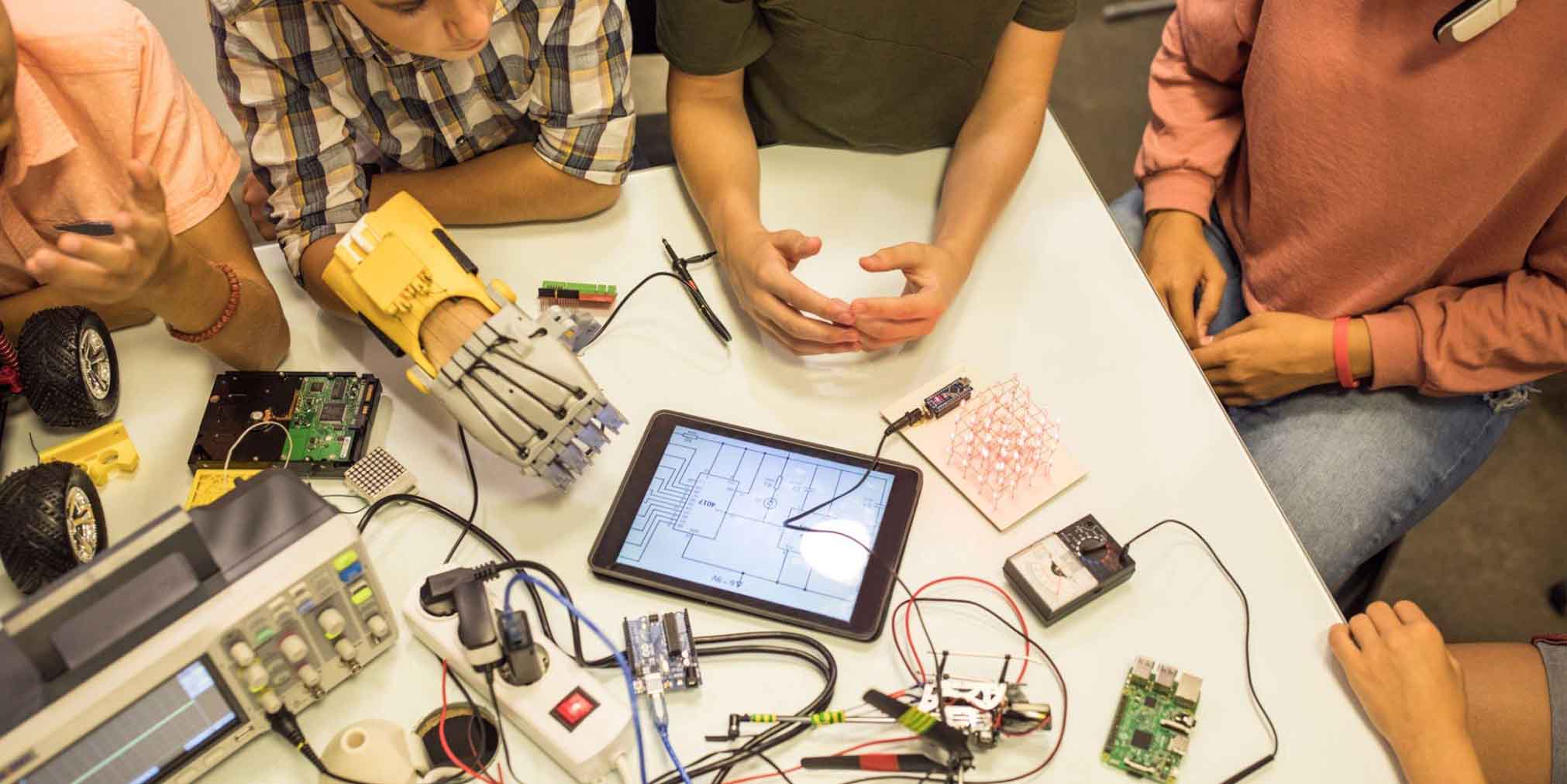

September 7, 2023
With EdTech, gone are the days when lectures were a single means of conveying information to students. AI in education offers an exhilarating learning experience for students.
AI is now vital in EdTech as it tailors course materials to personal goals. This customization aids in student-instructor communication. AI also helps track student progress and identify areas for more guidance. It’s revolutionizing education with limitless possibilities, leaving a lasting impact on student engagement.
This blog post will explore the impact of artificial intelligence on education. We will also discuss:
AI in Edtech empowers teachers to offer personalized feedback using innovative technology. Teachers can use student performance data for guidance, closely tracking progress and achievements. This tracking helps to create an interactive environment that promotes student engagement. It encourages learners to remain motivated throughout their educational journey.
Moreover, AI adaptive tools pinpoint improvement areas and track learning progress. It helps educators identify retention risks much earlier on.
AI is a valuable tool for creating an immersive learning atmosphere. It lends itself to students engaging in course material more effectively. It improves not only grades but overall satisfaction with their education as well.

AI in education solutions now identifies at-risk students prone to disengagement or dropout. Feeding demographic and past performance data into machine learning algorithms enables institutions to recognize patterns. The patterns allow them to catch at-risk students much earlier.
Universities and colleges can enhance student engagement and Retention through targeted interventions. This leads to an improved learning experience for all.
AI solutions can be used for customized content delivery. Here’s how AI facilitates customized content delivery in EdTech:
AI adaptive learning systems assess students’ learning patterns through quizzes, assignments, and tests. These systems analyze the data collected from students’ interactions. This helps identify their strengths, weaknesses, and areas that need improvement. Based on the analysis, the platform adjusts content to match students’ learning pace.
AI algorithms can analyze vast amounts of educational content, including textbooks. Checking students’ past performance, the system recommends supplementary materials to enhance their understanding.
AI solutions can categorize educational content based on its difficulty, topic and format. This allows the platform to curate content aligned with the student’s learning objectives. AI ensures that the learning materials are both easy and challenging.
This allows teachers to offer an individualized educational experience. One that decreases boredom and provides real value for the student.

AI technology can drastically improve the way universities engage and retain students. Virtual study group meetings and online support systems increase opportunities for student learning. With AI-powered systems, universities can:
Intelligent applications gather data to customize learning material for maximum effectiveness per student. All these efforts combined can help universities improve their student engagement rates. It enhances satisfaction with education services and boosts student retention rates.
Universities add a layer of personalized guidance by using AI to get an up-close view of students’ engagement with their studies. It encourages students on an individual level to excel in their educational pursuits.
AI enhances communication between universities and students. It boosts engagement through timely updates, informing students about important university events. AI also offers the advantage of detecting subtle language changes. This detection identifies a student’s emotional state and signals the need for support. AI equips universities to provide students with increased access to resources for success.
AI technology is revolutionizing the way universities operate and educate their students. AI-powered smart universities are becoming more prevalent as Edtech investments continue to increase. Universities understand that AI can:
AI can help optimize a university’s curriculum and monitor student performance in real-time. Moreover, AI can improve the learning experience. It uses big data analytics to create engaging virtual environments.
In conclusion, AI in education has changed student engagement and Retention. AI-driven technologies like intelligent tutoring systems can create adaptive assessments, providing student feedback.
Implementing these technologies in the classroom helps students optimize their learning outcomes. These advancements enable professors to provide interactive content and foster closer student relationships. AI Edtech is expected to grow exponentially in the coming years. Educators and administrators must collaborate for the optimal use of these powerful tools.